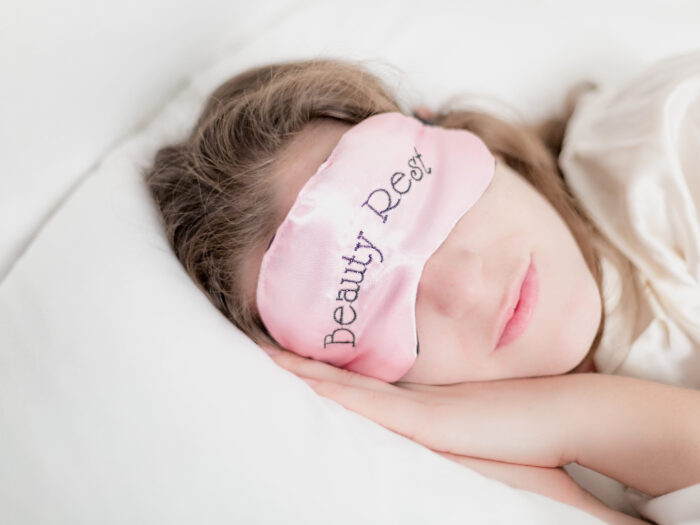
If you’re preparing for exams, then one of the most important things you can do to improve your chances of a good grade, as well as stay relaxed, is to ensure you’re getting a good night’s sleep as frequently as possible. Here’s why:
Sleep Helps You To Learn
The REM (rapid eye movement) stage of sleep is thought to be when the magic happens, consolidating the previous day’s learning. So, if you’ve spent the afternoon revising, don’t be tempted to stay up late into the night to continue to cram: the less REM sleep you get, the less chance your brain has to commit this information to memory.
As well as helping with the creation and storing of memories, it is thought that the brain processes and organizes what we have learned and our experiences throughout the day while we sleep so that we can call on this information in a helpful way later – in an exam, say.
Physical Benefits

Sleep is vital for the body as well as the mind. Our bodies use dream time to carry out cell repairs and other maintenance tasks that other processes make difficult during our waking hours. A lack of sleep can result in all sorts of physical discomfort, from feeling nauseous to persistent headaches, not what you want to be dealing with on exam day.
Sometimes physical changes can be made to our sleeping environments to help us get to sleep and prevent constant waking. The bedroom temperature is an important element of this, so make sure that your thermostat is set correctly and that you have a suitable mattress tog for the time of year. If you find that you’re susceptible to overheating while asleep, this could be causing significant sleep disruption, even if you don’t realize it. If this is the case, you may want to consider switching up your mattress: there are now specifically designed mattresses on the market that contain cooling technology, like this one: https://www.top10.com/mattresses/reviews/ghostbed.
This option comes in soft, medium, or firm options and has an impressive twenty-five-year warranty. The mattress is effective due to its cool gel memory foam layer, which works to distribute heat evenly as you sleep; choose between the standard or luxe options. For additional information, you can visit sleepmattress.co.
Affect On Mood

Sleep – or a lack of it – can have a profound effect on mood. Poor quality sleep has been shown to link to feelings of low self-esteem, mood swings, and depressive symptoms. Given that the exam period is often highly stressful for students, anything that can exacerbate anxiety should be avoided to stay as relaxed as possible. Getting a good night’s sleep is an easy way to boost mood and promote feelings of confidence and positivity, all of which can significantly affect performance in an exam or test.
A lack of sleep can also contribute to high blood pressure, which can cause feelings of jitteriness, as well as bringing on headaches and recurrent bouts of fatigue.
Fosters Focus And Concentration
Focus, communication, and the ability to reason logically are significantly impaired in those who aren’t getting the required amount of nightly sleep, another reason that hitting the hay at a sensible time the night before an exam is a wise move. Good cognitive function is reliant on getting the correct amount of sleep; seven or eight hours of solid snoozing a night during your exam period is likely to have a big impact on your ability to tackle your paper.
How To Get A Good Night’s Sleep

Now we’ve explored how sleep is vital for the proper functioning of the body and mind; what can we do to make sure we’re getting enough of it?
Choose The Right Mattress
As we touched on above, making sure you have the right mattress is really important to make sure you’re able to drift off to sleep quickly and stay there. If you suffer from back or neck pain, a supportive mattress can help with this, too.
Find out what type of mattress works well for you (the options are usually soft, medium, or firm), and anti-allergy choices are available for those sensitive to dust mites or other allergens. Opt for cotton sheets and duvet covers for comfort and to prevent overheating, and select the right tog duvet for the time of year and the temperature of your bedroom.
Start A Routine

A routine can be really useful at bedtime, as it gives your brain a signal that it is time to go to sleep, and you’ll find, fairly quickly, that you’ll begin to drop off quicker. Incorporate a small winding down ritual into your routine to help get rid of any stress and relax you ready for sleep; reading for ten minutes in bed, meditating, or listening to relaxing music are easy things to include.
Turn Off Devices
Studies have shown that the blue light emitted from many devices can cause poor quality sleep. This is because this type of light effectively wakes up the brain sleepfoundation so that it doesn’t release the chemicals needed for us to nod off into a deep sleep.
To resolve this, try having a cut-off time for devices a couple of hours before you’re planning to go to bed and – I know it’s hard – but keeping devices out of the bedroom will go a long way to helping, too.
Relax During The Day

This might sound impossible, especially during exam season, but staying as relaxed as you can during the day will help you achieve the best sleep possible at night. Consider practicing mindfulness or breathing techniques regularly, especially when you feel stress creeping in, to help ground you and promote a sense of positivity.
Eat For Sleep
Certain foods have been linked to better sleep, so pack your diet with these over the exam period. Melatonin helps to regulate the sleep cycle and is found in almonds, fish, milk, and eggs. Lettuce is thought to have a mild sedative effect as a result of the compound lactucin that it contains; in experiments consuming lettuce has been found to decrease the amount of time it takes to fall asleep and improves the duration of sleep.
Chamomile tea could be helpful, too: many people enjoy a warm cup of this beverage before bed, believing it to promote a good night’s sleep.
The Takeaway
Sufficient sleep could be the key to your exam success. Incorporate sleep-inducing practices into your daily life to help you both prepare and cope with the stresses of exam season and snooze your way to success.








